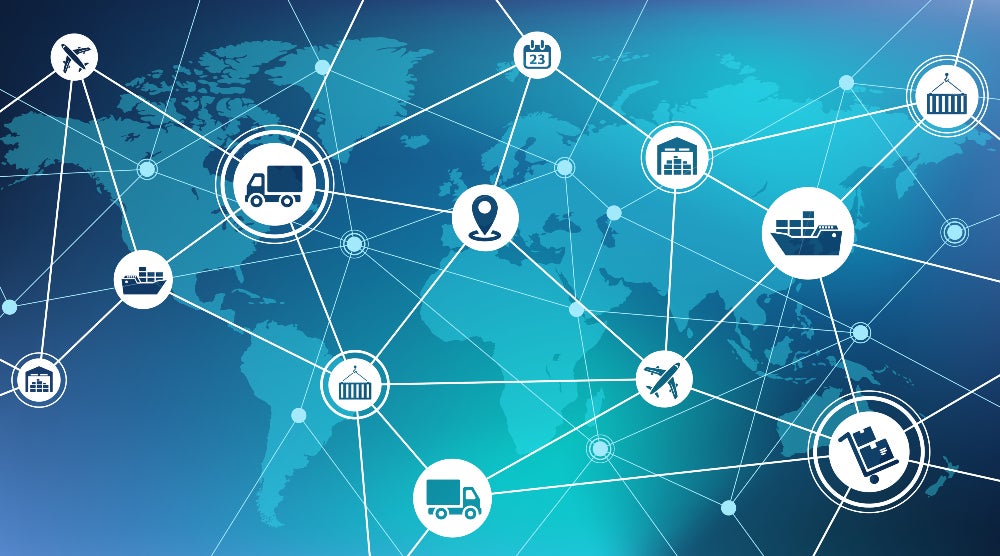By Boomi
Every industry has faced disruption due to COVID-19, but few as substantially as the supply chain and logistics field. Between border closures, factory shutdowns, sick workers, and economic tension, supply chains have been put to the test in every discernible way since the crisis started. Companies at both ends of supply chains have suffered as a result. They’ve seen rising costs, product delays, loss of business, and more – through no real fault of their own.
Supply chain strain is not inevitable, however. Companies with robust data integration throughout their supply chain systems are finding ways to navigate the chaos. Access to aggregated data channels allows them to pivot quickly and make smart, adaptive decisions during the pandemic and beyond. Often, this is only possible with an integration platform as a service (iPaaS).
The Growing Digitization of Supply Chains
The shift to digital supply chains isn’t novel. Freight and logistics companies have been moving away from antiquated analog processes for the better part of a decade. Today, it’s almost impossible to operate without a digital Transportation Management System (TMS) or chain-of-custody software. Many companies are even moving into decentralized freight management and tracking on the blockchain. Digitization has clear benefits:
- Accountability and transparency
- Agility and adaptability
- Cost efficiency through leaner operations
- Reduction in liability and loss
- Improved, real-time logistics
The bottom-line benefits are even easier to see. Digital supply chains are quicker, cheaper, and more reliable than paper trails. But while these benefits used to give third-party logistics providers (3PLs) and supply-chain managers the edge in their industry, digital is now the standard. Add in the disruption of COVID-19, and supply chain digitization is essential. There’s an urgent need for companies to have a data-driven supply chain to help them make smart decisions when facing uncertainty.
Digitization Is Step One, Integration Is Step Two
Hardware and software solutions are available for digitizing every critical facet of the supply chain. While this is a vital first step toward gaining valuable insights, supply chain data integration is even more important. Without taking segmented logistics data out of isolated silos, companies have a hard time adapting to external forces impacting the supply chain.
Even in the most straightforward domestic supply chain, there are dozens of factors to consider – including weather, carrier choice, freight schedule, inventory availability, and so on. It only gets more complex with global supply chains. Logistics companies can’t afford to piece together snippets of data to make the best decisions about where, when, how, and at what cost to move their goods. Every supply chain needs clear and complete data.
The problem is, there’s broad diversity in the digital ecosystem. Supply chain data integration can be difficult when various software applications and distributed hardware systems have data that isn’t synchronized to work seamlessly throughout the organization. Fragmented systems create friction that ultimately can result in the breakdown of a smooth supply chain. When there isn’t a way to move data easily and have one unified repository where it can be easily accessed, companies need to innovate. This is where iPaaS can help. iPaaS can enable broad integration across the digital ecosystem, so data can be moved, managed, and governed. That flexibility unlocks powerful insights that help organizations provide the best service for customers.
Integrate, Clean, and Organize Supply Chain Data
iPaaS paves the way for smarter supply chain data management by enabling tangible insights. Instead of cobbling data together from multiple resources into labor-intensive workflows, iPaaS removes integration barriers to allow free-flowing data. That includes everything from the always-on sensor systems in your cargo to the digital signature at the point-of-receipt. Integration makes it easy to see supply chain data and recognize the possibilities for where the broader supply chain can be improved.
How can you cost-effectively reroute a shipment that’s behind to get it back on schedule? What less-than-load carriers are available in a particular region, and what are their rates? How does the bill of lading for a shipment compare to intake data from its last checkpoint? Questions like these require multiple data streams to find answers. Manually aggregating data into spreadsheets increases the chances of mistakes and decreases the odds of choosing the smartest solutions. But when data is aggregated, cleaned, and organized through an iPaaS, the right answers are surfaced.
iPaaS is integral for the modern digital supply chain. A unified platform transforms siloed data into rich workflows of actionable insights. The best part is they also provide the flexibility and scalability to adapt as supply chains become more complex.
Digital Supply Chains Protect Companies From Disruption
The COVID-19 pandemic is a crash course in the importance of having a data-driven supply chain. This crisis may indeed be “unprecedented.” But widespread, unforeseeable disruptions aren’t unusual. Companies with access to organized, insightful supply chain data are better positioned to make decisions that can reduce the negative impacts of disruption.
While it’s (hopefully) unlikely we see another pandemic anytime soon, there’s no shortage of other events that affect global supply chains every day. Natural disasters. Human error. Even a single, minor disruption can derail the broader supply chain. There’s no way to prevent what you can’t expect. All you can do is adapt. To do it effectively requires a data-driven supply chain that’s unified by a powerful iPaaS.
Learn how Boomi helped the leading European supplier of pooled, eco-friendly plastic pallets and containers modernize its inventory tracking system and speed integration projects 10X. Read the Contraload success story.





